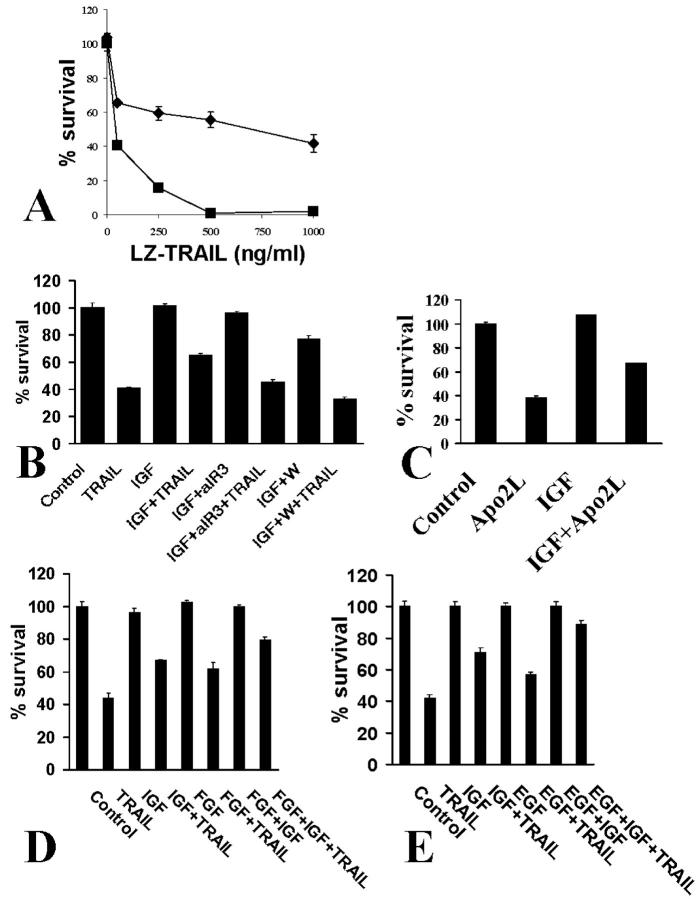Figure 4.
Effect of survival factors on TRAIL-induced apoptosis in thyroid carcinoma cells. A: IGF-1 (100 ng/ml), a growth/survival factor present in serum and produced locally in thyroid carcinomas by stromal cells in vivo, protected SW579 cells from recombinant LZ-TRAIL (50 to 1000 ng/ml) (no IGF-1, squares; IGF-1, diamonds). B: This protective effect was inhibited by the IGF-1 receptor-neutralizing antibody aIR3 (2 μg/ml) and by the PI-3K inhibitor wortmannin (W) (5 μmol/L). Cell survival was quantified with the MTT assay. IGF-1 alone had only minimal proliferative effect within the short incubation period of the experiment (18 hours). C: IGF-1 (100 ng/ml) also lowered the proapoptotic activity of the Apo2L form of the ligand (100 ng/ml). D: bFGF (10 ng/ml) also partially attenuated LZ-TRAIL (50 ng/ml)-induced apoptosis, an effect that was potentiated by IGF-1 (100 ng/ml). Cell survival was quantified with the MTT assay. E: EGF (10 ng/ml) also partially attenuated LZ-TRAIL (50 ng/ml)-induced apoptosis, an effect that was potentiated by IGF-1 (100 ng/ml). Cell survival was quantified with the MTT assay.

